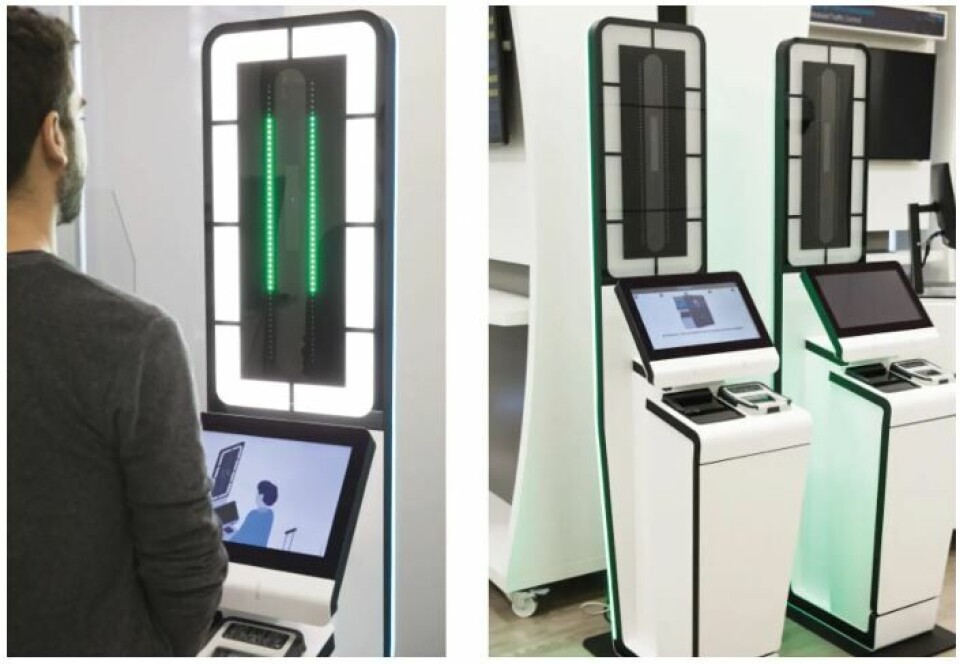-
Pistes closed, confinement orders: Alpine resorts deal with avalanche risk
Increased snowfall this weekend may cause further closures as busy school holiday season continues
-
Former French Interior Minister announces 2027 presidential candidacy
Bruno Retailleau recently asked prefectures to be tough on immigration
-
Ryanair axes Dublin-Rodez route but London connection retained
“We are disappointed but had no say in decision” say airport authorities
New EU border checks: how are French ports and airports preparing?
We look at whether the launch will be progressive and what disruption is expected

French airports and ports are preparing for a new system of border checks that will log travellers' personal details and biometric data for trips to and from the European Union and is due to launch this autumn.
We look at how the work is progressing and what disruption is expected.
The Entry/Exit system (EES) will record the name, age, facial image, fingerprints, point of entry and exit for everyone over the age of 12 travelling to and from the EU.
In January, a UK Parliamentary report on the rollout of the EES included submissions from airlines, Eurostar, coach and ferry firms expressing their concerns over the potential disruption it might cause to travel to the EU from the UK.
In particular, St Pancras station, where the French authorities manage the border for Channel tunnel passengers has requested more means and flexibility for the rollout, which it says could add “two to three minutes” of processing time per passenger.
Read more: New Dover border checks may cause 'alarming' 14-hour delays, MPs told
How is France preparing for the Entry/Exit system?
Last year the French Interior Ministry announced that it had ordered 544 biometric data kiosks for the EES from French electronics supplier Thales.
These kiosks are currently being fitted in French ports and airports, which are at various stages of readiness.
“For the moment we are still in the technical review stage,” Frederic Pingret from Cherbourg Ferry Port told The Connexion. “But there should be no problem to fit the kiosks intended for foot passengers.
“However for vehicles, since we still have an ongoing road-rail link in construction, the installation of kiosks might be a bit more difficult, but we still expect to be operational for October 6”.
The Connexion also contacted the port of Calais and French airport union, l’Union des Aéroports Français, who are expected to announce their plans in March.
Lyon airport, on the other hand, has been testing biometric systems for over three years as a means of streamlining the boarding process. However, the system it uses does not use the same kiosks intended for the EES.
Similarly, the Parafe gates that have been widely used in French airports since 2010 to scan biometric data for EU passengers travelling within the Schengen zone do not use the same system, meaning that airports have to fit the new kiosks for people leaving the EU alongside them.
EES rollout will be ‘progressive’ in France
One of the major concerns that Eurostar detailed in its written submission to the UK Parliament was the lack of flexibility and of a back-up plan should the EES lead to significant delays.
However, this does not appear to be the case in France, where the authorities are allowing for a certain leeway in the EES rollout.
“The start date of October 6 will be progressive,” said Mr Pingret. “There will be fewer restrictions on the checks for the first six months in line with the recommendations of the French authorities”.
This will likely mean that some passengers will continue to use the old system of passport controls, which should allow French ports and airports to avoid massive queues at the biometric kiosks.
Is there a precise date for launch of EES?
The launch date for the EES has been pushed back several times and is now said to be in autumn after the 2024 Paris Olympics.
Since the project is Europe-wide, it is subject to the rollout of the EU’s new data framework, which EU sources told The Connexion will “be operational from autumn 2024”.
The October 6 date given by the port of Cherbourg is likely to be their own target for the launch due to the ambiguity that still surrounds the precise start date.
Indeed, the launch of the EES has already been pushed back several times. It was initially earmarked for 2020, then was pushed back to May 2023. Now it seems highly likely to begin in autumn 2024.
The French and European authorities remain coy as to whether the EES app will be integrated into their systems from October.
The app is expected to allow travellers to register for the EES prior to reaching the border checkpoints. However, British travel operators’ body Abta, reports that France is not opting to use it.
Read more
Alarm grows over new digital checks at UK/France borders from autumn
New European Entry/Exit System: 9 key things to know in advance
Plan to ease launch of EU Entry/Exit system with app pre-registration
























